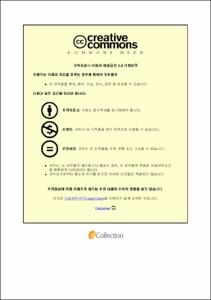제도의 폭력과 모성
- Alternative Title
- The Violence of institution and Motherhood: Slavery and Various Aspects of Motherhood in Toni Morrison's Beloved
- Abstract
- Abstract
Analyzing Toni Morrison’s Beloved, this thesis investigates African American woman’s motherhood under slavery as the means of resistance to the violence of the institution and of restoring slave woman’s subjectivity and the integration of African American community. Although some feminists claim that the notion of motherhood is just a patriarchal tradition to subordinate women to men, the novel proposes that motherhood is an essential element to constitute woman’s subjectivity and the community’s integration. Through the protagonist Sethe’s life, Beloved insightfully describes how slavery tried to deprive black women of motherhood with physical and psychological violence and thus sometimes how their motherhood was distortedly expressed by such violence.
For slavery, which dealt with female slaves not only as slave owners’ property but as the means to proliferate the property, motherhood was a threat. In the novel, Sethe could neither think of such inhumane nature of slavery as injustice nor resist it until she fled from her owner and enjoyed freedom as a human being. Yet the experience of freedom lets Sethe kill her baby daughter without hesitation when her owner has a dash at arresting her. The thesis argues that Sethe’s murder of her daughter is not the abandonment of motherhood, but rather her action is caused by her motherhood to the extent that she wants to protect the baby, the daughter of a human being, from slavery: indeed, the murder is the mother’s self-sacrifice not to hand over her state as working and reproducing machine to her daughter. But Beloved does not claim such violence under the name of motherhood is just. Rather, by showing how deeply the distorted expression of motherhood leaves scar on both Sethe herself and the community of African Americans, the novel stresses African Americans’ difficulty in regaining freedom and their own voice even after emancipation: the scar makes them bound in the trauma from slavery.
In the novel, Sethe’s dead daughter, Beloved, comes back to Sethe and the black community to help them overcome the trauma. Beloved, staying at Sethe’s house, keeps behaving senselessly, and Sethe tolerates all she does. The torturous days with Beloved are necessary for Sethe to apologizes to the dead daughter for her past fault exercised by motherhood and to retrieve her genuine motherhood. The restoration of genuine motherhood helps her concrete her subjectivity as a woman and mother and brings about her reconciliation with the black community, implying healing the trauma of the African American community from slavery and promising their future as free human beings. As such, the thesis explores the significant capacity of motherhood for one’s subjectivity and human freedom that Beloved suggests.
- Issued Date
- 2015
- Awarded Date
- 2015. 8
- Type
- Dissertation
- Publisher
- 부경대학교 일반대학원
- Alternative Author(s)
- Lee, Hye Sook
- Affiliation
- 부경대학교 일반대학원
- Department
- 대학원 영어영문학과
- Advisor
- 송호림
- Table Of Contents
- 목 차
Abstract ⅱ
Ⅰ. 서 론 1
Ⅱ. 빼앗긴 젖과 상처받은 모성애 7
Ⅲ. 희생된 딸과 뒤틀린 모성애 20
Ⅳ. 권력 저항과 회복된 모성애 32
Ⅴ. 결 론 45
참고 문헌 48
- Degree
- Master
- Files in This Item:
-
-
Download
 제도의 폭력과 모성.pdf
기타 데이터 / 680.96 kB / Adobe PDF
제도의 폭력과 모성.pdf
기타 데이터 / 680.96 kB / Adobe PDF
-
Items in Repository are protected by copyright, with all rights reserved, unless otherwise indicated.